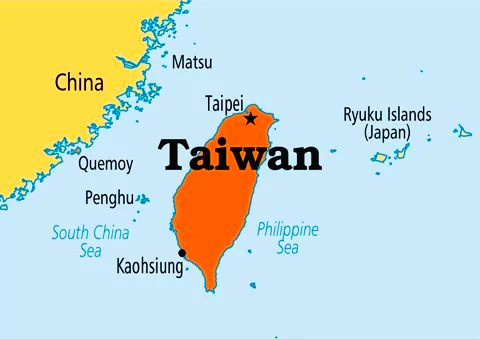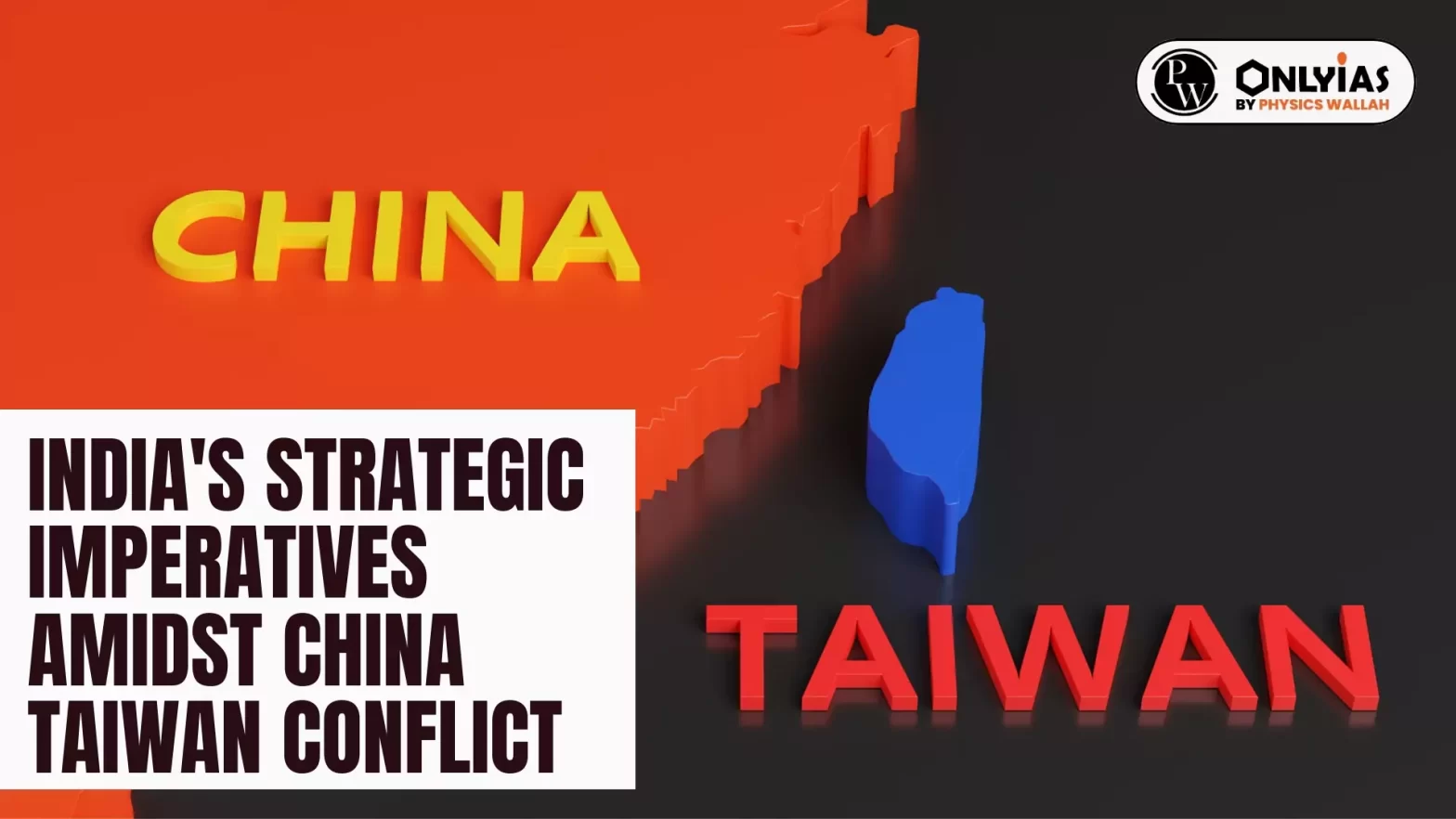Context
Amidst rising conflicting scenarios between China and Taiwan, further escalated by the US entry that would probably fight to defend Taiwan, India needs to enact tougher policies to serve its own interests.
China Taiwan Conflict: China’s Strategy for Taiwan
- To use all Instruments of National Power: China would use all instruments from international law to economic and political leverage, aside from military coercion.
- Action as per Need: China would prefer to pursue less costly and disruptive non-military ways as long as they remain viable and would only resort to a military campaign once it is satisfied that it has adequately set the conditions for victory.
- By various instances, it has been concluded that China is using its Belt and Road Initiative (BRI), soft power and trade as a weapon for its interest and the same will hold true for Taiwan too.

Taiwan Map
Reasons For India to Maintain the Status Quo
-
Economic Interest:
- India and Taiwan have expanded trade seven-fold since 2001 and are exploring a possible free trade agreement.
- Recently, an agreement was signed to send Indian workers to Taiwan.
- India’s industry, critical supply chains, and overseas population are all increasingly invested in an enduring peaceful status quo across the Taiwan Strait.
- Example: A Taiwanese firm has partnered with the Tata Group to build India’s first semiconductor fabrication plant.
-
High Costs of Conflict:
- Any Chinese aggression against Taiwan would create disruptions throughout Asia and West Asia and would be costly for India. India simply cannot afford to alter its status quo, especially as it seeks stability and growth for national development.
- As per recent Bloomberg study, the costs of a conflict would amount to over 10% of global GDP.
- A protracted or general war between China and the U.S., spreading beyond Taiwan, could impact more severely.
- It could intensify the already tense India-China land border, impact the various regional countries’ industrial capacity and raise the risk of nuclear war.
-
Regional Security:
- A limited conflict, where China has relative advantages and is most likely to end in a Chinese victory and would undermine the region’s entire security architecture.
- American security guarantees would be less credible and China’s military would be free to further project unchecked influence, including into the Indian Ocean. It may even call for its claims on Arunachal Pradesh.
- India is not an American ally, but it does depend on the U.S. for its military modernisation and a broadly benign strategic environment.
What Can India Do to Prevent this China Taiwan Conflict?
- Diplomatic Actions: India can use international law arguments, can build narratives opposed to aggression and support a coordinated diplomatic messaging to counter China’s aggression.
- Strategic Actions: By using economic de-risking, active information operations to support the Taiwanese people and providing military support to the U.S. forces in the Indian Ocean, India can help in countering China’s aggression and maintain regional stability.
Conclusion
India’s expanding interests and ambitions suggest the need for different policy settings, and adoption of above mentioned options can also advance India’s grand strategic position, regardless of their impact on the China Taiwan dispute, deepen India’s cooperation with the U.S., exhibit India’s international leadership, especially among countries of the Global South.
Also Read: Changing Dynamics Of India’s Foreign Policy
| Prelims PYQ (2022):
Which one of the following statements best reflects the issue with Senkaku Islands, sometimes mentioned in the news?
(a) It is generally believed that they are artificial islands made by a country around South China Sea.
(b) China and Japan engage in maritime disputes over these islands in East China Sea.
(c) A permanent American military base has been set up there to help Taiwan to increase its defence capabilities.
(d) Through International Court of Justice declared them as no man’s land, some South-East Asian countries claim them.
Ans: (b) |
![]() 28 Mar 2024
28 Mar 2024

